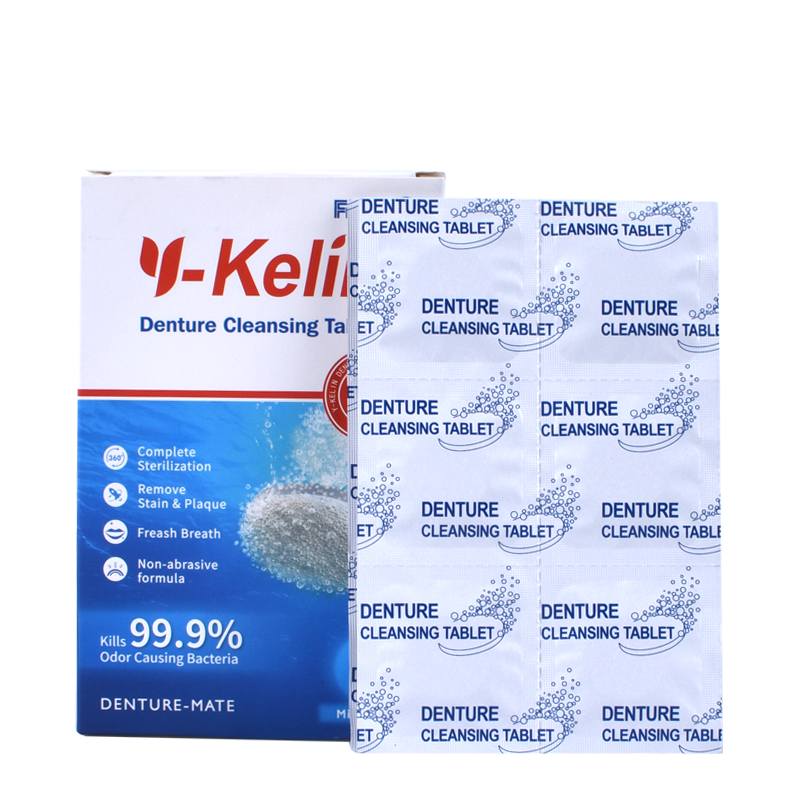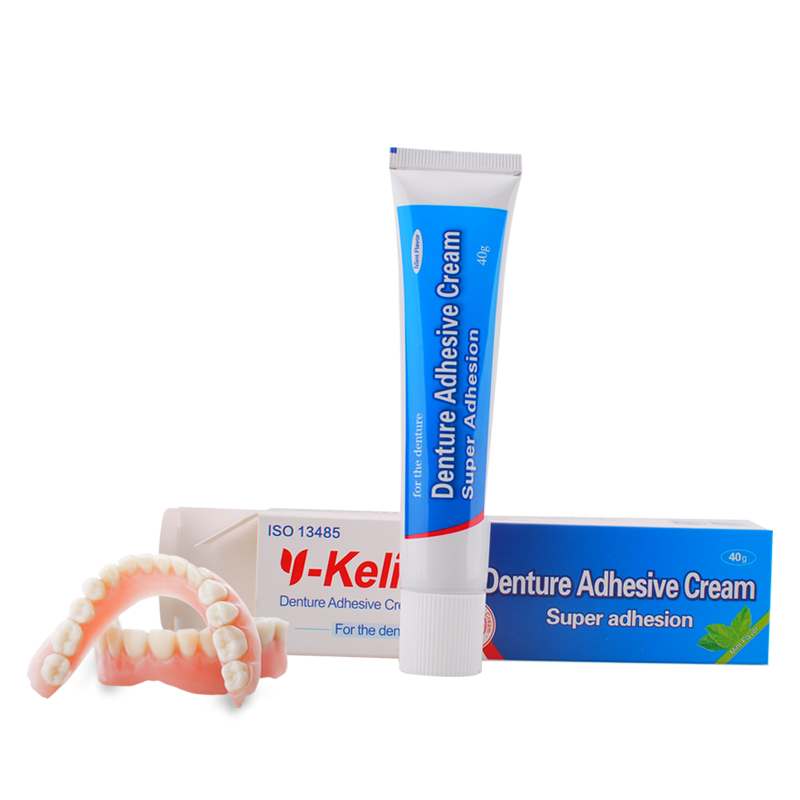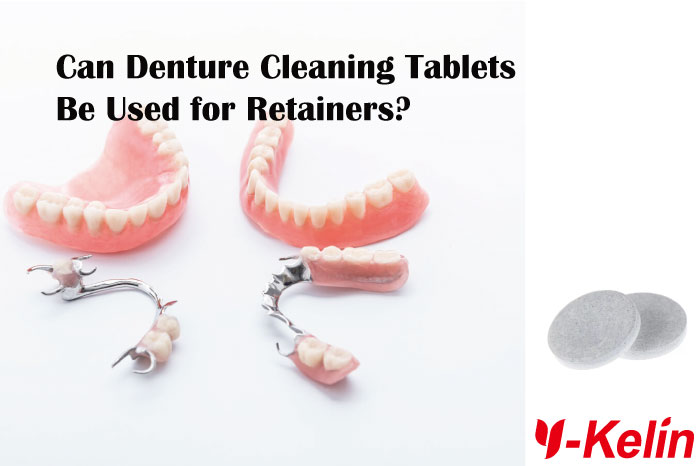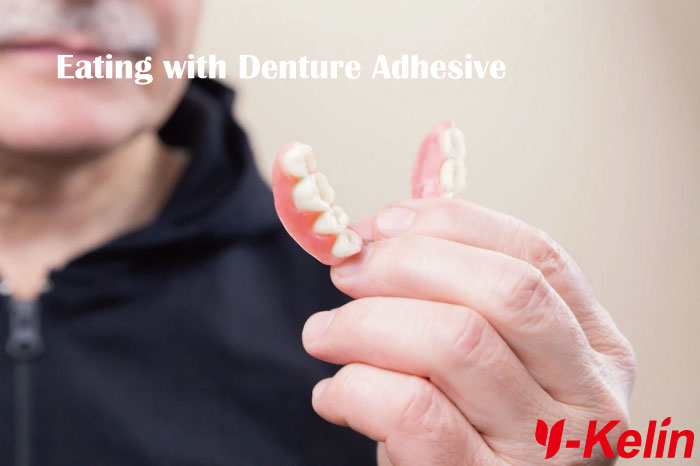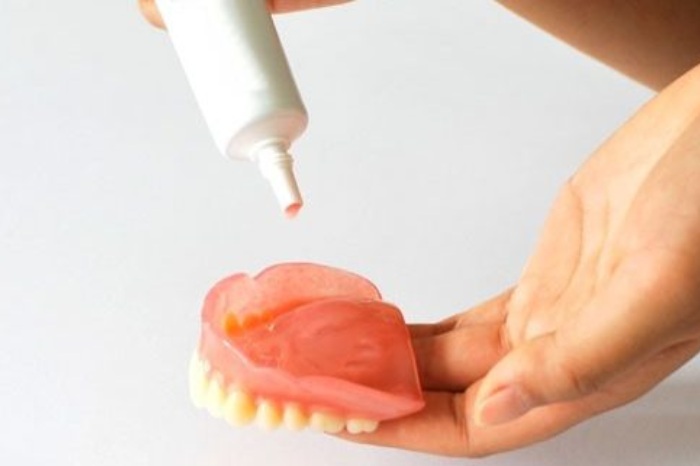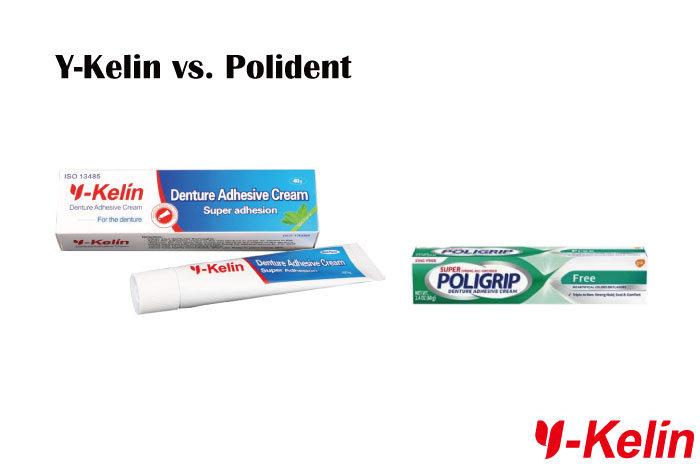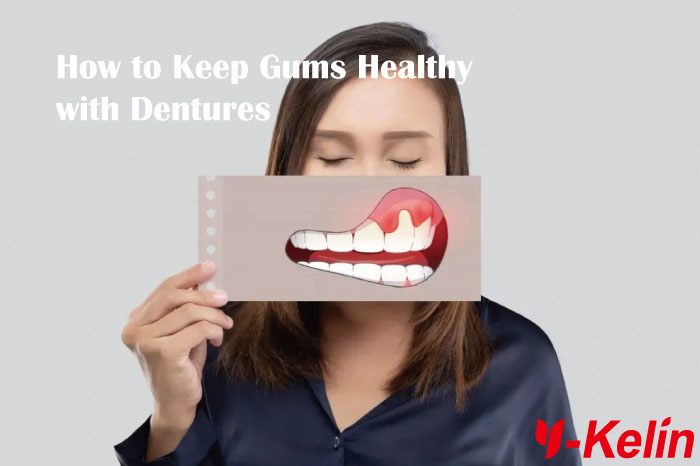
How to Keep Gums Healthy with Dentures?
Published On:
Maintaining gum health is essential for anyone wearing dentures. While dentures are designed to restore function and appearance, improper care or fit can lead to discomfort, irritation, and long-term damage to your gums. Healthy gums provide the foundation for well-fitting dentures, ensuring they stay secure and comfortable throughout the day.
However, denture wearers face several challenges in keeping their gums healthy. From soreness and irritation caused by poor-fitting dentures to bacteria buildup that can lead to infection, the daily routine of denture care can be overwhelming. Fortunately, with the right products and practices, these issues can be effectively managed, allowing you to enjoy a comfortable and pain-free experience with your dentures.
Why Dentures Can Harm Your Gums
Poor Fit
One of the most common reasons dentures harm gums is poor fit. Ill-fitting dentures can cause friction and irritation as they rub against the soft tissues of the gums. Over time, this can lead to painful sore spots and may even result in gum tissue damage. Regular dental checkups are essential to ensure that dentures fit properly and are adjusted as necessary.
Unnecessary Pressure
When dentures do not sit properly, they can place uneven pressure on certain areas of the gums. This pressure can cause sore spots, swelling, and even bruising, making it uncomfortable to wear dentures for extended periods.
Adjusting the dentures or using denture adhesive, such as Y-Kelin’s denture adhesive, can help alleviate this issue by providing a secure and balanced fit.
Bacteria Accumulation
Another significant concern for gum health is bacteria buildup from poorly cleaned dentures. Residue from food, adhesive, and plaque can accumulate on dentures if they are not cleaned properly. This buildup creates a breeding ground for bacteria, which can lead to gum infections, bad breath, and even more severe oral health problems.
Using denture cleaning tablets like Y-Kelin’s can help remove these harmful residues and ensure that your dentures stay clean and your gums remain healthy.
Why Dentures Can Cause Oral Pain
Pressure Points
One of the main causes of oral pain from dentures is pressure points. Hard or uneven dentures can create spots where they press too hard against the gums, causing localized pain, soreness, and even bruising. These pressure points can develop when dentures are too tight, poorly fitted, or not adjusted regularly. A professional dental check-up can help identify these issues and ensure proper fitting to alleviate discomfort.
Lack of Proper Lubrication
If dentures are not sealed properly with adhesive, they can shift and move in the mouth, causing discomfort. This lack of stability can lead to painful rubbing and friction against the gums, making the dentures feel loose or unstable. Proper adhesion and fitting reduce the risk of shifting and help minimize the pain caused by movement.
Gum Sensitivity
After tooth extraction, the gums may be tender and sensitive as they heal and adjust to wearing dentures. During this adjustment period, new denture wearers often experience soreness, as the gums adapt to the pressure of the dentures. This is normal but can be uncomfortable. Over time, the gums will become accustomed to the dentures, but it’s important to follow proper care instructions and allow your gums time to adjust to prevent prolonged pain.
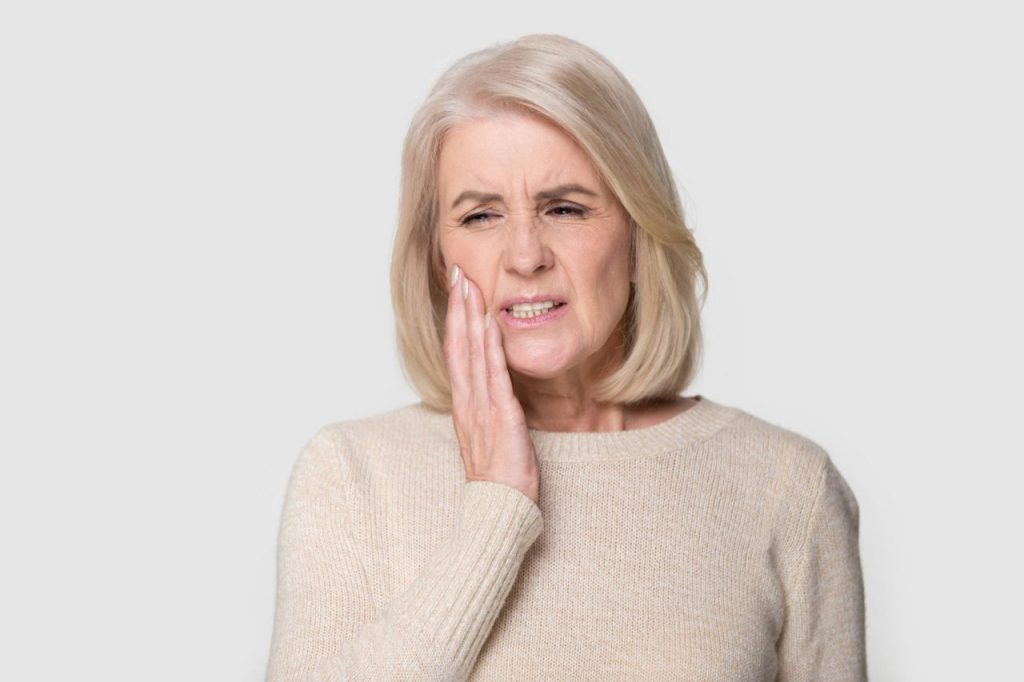
How To Keep Your Gums Healthy?
Keeping your gums healthy while wearing dentures is important for both comfort and oral health. Here are some key tips to help maintain healthy gums:
Clean your dentures regularly: Just like natural teeth, dentures need to be cleaned to remove food particles and bacteria. Use a soft brush and denture cleanser to clean your dentures daily, and avoid using regular toothpaste, which can be abrasive.
Remove dentures at night: Taking your dentures out while you sleep allows your gums to rest and reduces the risk of irritation and pressure sores. It also helps prevent bacterial buildup.
Soak dentures overnight: Soaking dentures in a cleaning solution or plain water overnight helps to keep them moist and prevents them from warping. This also helps with cleaning them thoroughly.
Gently massage your gums: Before inserting your dentures, gently massage your gums with your finger or a soft toothbrush. This can stimulate blood flow to the gums and keep them healthy.
Rinse your mouth after meals: After eating, rinse your mouth with water to remove food particles. This helps reduce plaque buildup on your gums and dentures.
Maintain a healthy diet: Eating a balanced diet that includes plenty of fruits, vegetables, and whole grains can support gum health. Avoid sugary or sticky foods that can contribute to plaque buildup.
Regular dental check-ups: Even with dentures, it’s important to visit your dentist regularly. They can check the fit of your dentures, examine your gums for any signs of irritation or infection, and perform professional cleanings.
Use denture adhesive sparingly: If you need denture adhesive, use it sparingly. Overuse can lead to gum irritation, and it may also cause discomfort over time.
How to Make Wearing Dentures More Comfortable
Adjustment Period
When you first start wearing dentures, your gums may need time to adjust to the pressure and fit. This period can be uncomfortable, but it’s important to give your gums time to heal. Start by wearing your dentures for shorter periods each day to allow your gums to gradually get used to the new pressure. If the discomfort persists, consult your dentist for adjustments to ensure a better fit and more comfort during the adjustment period.
Use of Denture Cushioning
Denture cushioning, such as soft liners, can provide additional comfort by improving the fit of your dentures. These soft materials help reduce irritation and pressure points, offering a more secure and comfortable fit. In some cases, denture adhesives can also help create a firmer seal, preventing dentures from shifting and further reducing discomfort. Regularly checking the fit of your dentures and using cushioning products can significantly enhance comfort.
Regular Rinsing
Keeping your mouth clean and hydrated is essential to reducing irritation from dentures. After eating or wearing dentures for an extended period, rinse your mouth with warm water to remove food particles and prevent bacteria buildup. Additionally, staying hydrated helps prevent dryness and irritation of the gums, which can be exacerbated by dentures. Maintaining a routine of cleaning both your dentures and gums can reduce discomfort and keep your mouth healthy.
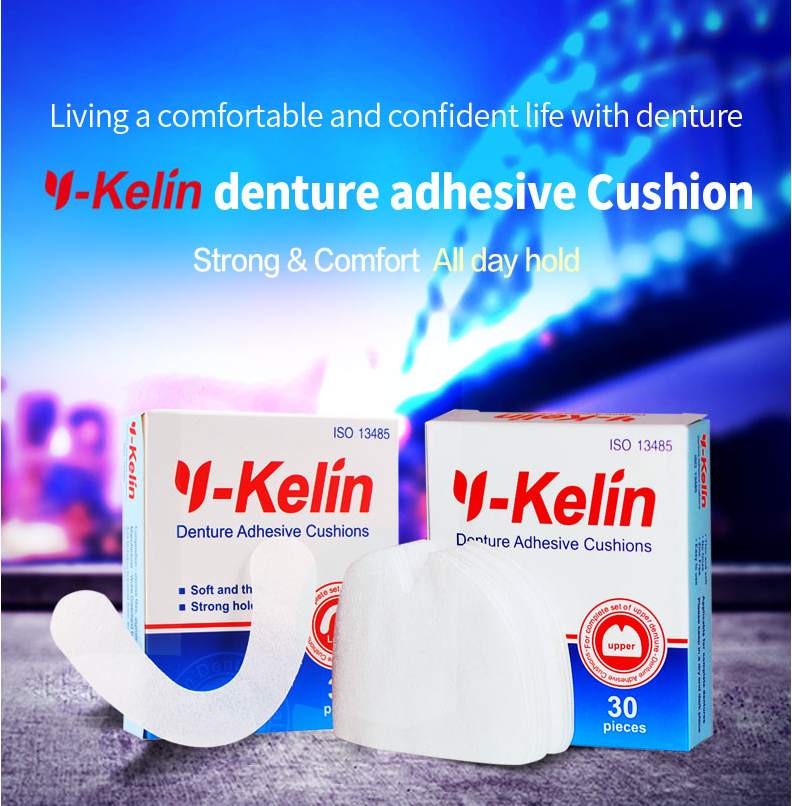
Common Problems with Dentures and How to Solve Them
Loose Dentures
Loose dentures can slip and cause discomfort. Use denture adhesive to secure them, and if they continue to slip, visit your dentist for adjustments or relining.
Sore Spots
Ill-fitting dentures can cause sore spots on the gums. Remove dentures to let your gums rest, use soft liners for comfort, and consult your dentist for proper fitting.
Dry Mouth
Dry mouth can make wearing dentures uncomfortable. Drink plenty of water, use saliva substitutes, and clean dentures regularly to prevent dryness. If symptoms persist, consult your dentist.
Difficulty Eating Certain Foods
Certain foods can dislodge dentures or cause discomfort. Avoid sticky or hard foods, cut food into smaller pieces, and ensure your dentures are properly fitted.
Gum Inflammation and Irritation
Gum irritation can occur from poor-fitting dentures or lack of cleaning. Clean dentures and gums daily, remove dentures at night, and visit your dentist for adjustments if irritation continues.
Bad Breath (Halitosis)
Poor cleaning can lead to bad breath. Clean dentures daily with cleaning tablets and an ultrasonic cleaner, and brush your gums and tongue regularly.
Trouble with Speech
Ill-fitting dentures can affect speech. Practice speaking with dentures in place, and visit your dentist for fitting adjustments if speech issues persist.
Gum Recession
Gum recession can result from ill-fitting dentures or constant pressure. Ensure dentures fit properly, and visit your dentist for check-ups and adjustments.
Denture Staining
Staining occurs from food, drinks, and tobacco. Clean dentures regularly with denture cleaning tablets or an ultrasonic cleaner to remove stains.
Denture Odor
Odor can develop from trapped food and bacteria. Regular cleaning with denture tablets and overnight soaking can eliminate odors. If odor persists, visit your dentist for a professional cleaning.
By addressing these issues with proper care and maintenance, you can ensure a comfortable, healthy experience with your dentures.
Conclusion
Maintaining gum health while wearing dentures is essential for both comfort and overall oral hygiene. Proper care, including regular cleaning and ensuring a good fit, is key to preventing irritation and other common issues.
Y-Kelin products, such as denture adhesive and cleaning tablets, are effective solutions for promoting healthy gums and ensuring a comfortable denture experience. These products work together to provide a secure fit and a thorough clean, keeping your dentures and gums in top condition.
FAQ
How do you fix receding gums from dentures?
Receding gums from dentures can be fixed by ensuring a proper fit, regular dental adjustments, and using soft liners for added comfort. In severe cases, gum grafting may be necessary.
Can dentures affect your gums?
Yes, poor-fitting dentures can cause irritation, pressure points, and gum recession. They can also trap bacteria if not cleaned properly, leading to gum infections.
What is the best gum for denture wearers?
Sugar-free, non-sticky gum is best for denture wearers. Look for gums that promote saliva production and are dentist-approved to avoid damaging dentures.
How long does it take gums to heal for dentures?
Gums typically take 6 to 8 weeks to heal enough for denture fitting. Full healing can take several months to a year as the gums adjust.
How can I strengthen my gums for dentures?
Strengthen gums by brushing them gently, staying hydrated, eating a healthy diet, and visiting the dentist regularly for checkups and adjustments.
Can you get permanent dentures with receding gums?
Yes, permanent dentures are possible with receding gums, often with treatments like bone grafting or implant-supported dentures for better stability.
What is the most comfortable denture to wear?
Custom-fitted dentures are the most comfortable. Soft liners and implant-supported dentures can further enhance comfort by providing a secure and natural fit.
Get in Touch with Y-Kelin
Have questions or need more information? Contact us today, and our dedicated team will assist you promptly.


Y-Kelin is a trusted manufacturer of high-quality denture care products, including denture cleaning tablets, adhesive creams, and retainer cleaning solutions, offering customized services for global partners.
